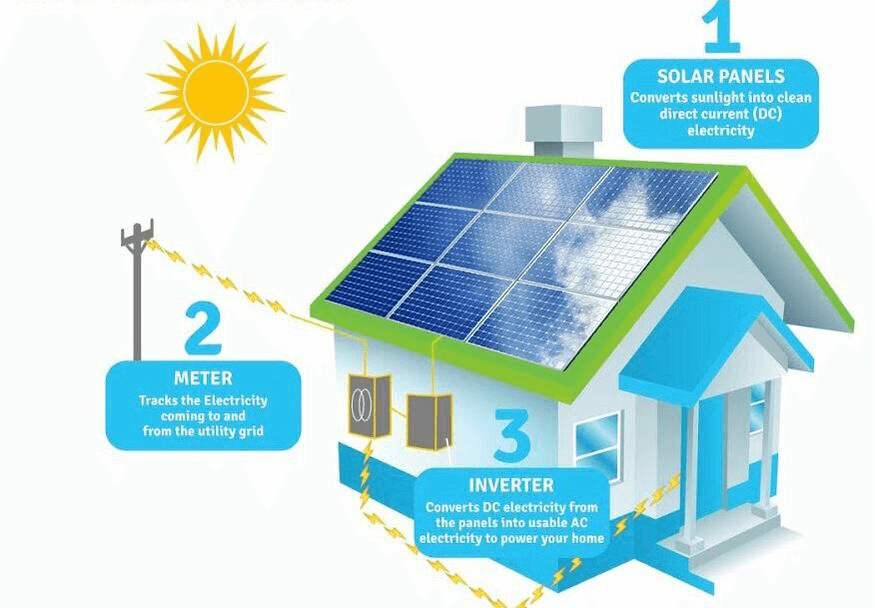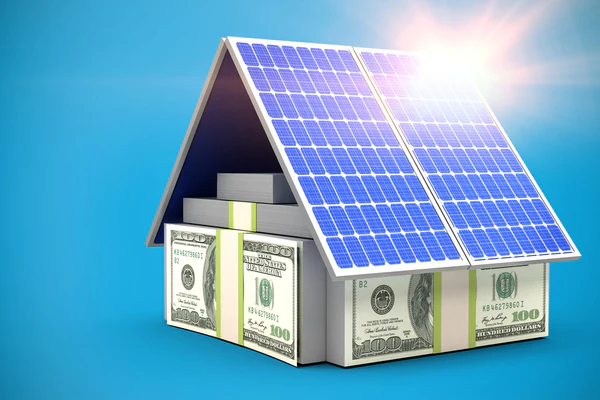Solar Power 101: A Novice's Overview to Sustainable Power Solutions
As the globe progressively moves towards sustainable energy services, understanding the principles of solar energy comes to be necessary for both individuals and companies. This overview supplies an extensive summary of solar power, describing the different systems offered and the systems behind their procedure. By discovering the advantages of solar technology, together with the monetary motivations and setup procedures, one can gain a more clear viewpoint on exactly how to successfully integrate this renewable energy right into their energy technique. However, the trip toward adopting solar power invites additional assessment of the difficulties and considerations that feature it.
Comprehending Solar Energy
At its core, comprehending solar power involves grasping the fundamental concepts of exactly how sunshine can be transformed into functional electrical power. Solar power is obtained from the sun's radiation, which can be taken advantage of with various innovations. The primary device for this conversion is the photovoltaic or pv effect. This sensation occurs when sunlight strikes semiconductor products, commonly silicon-based, within solar cells. The energy from the sunshine delights electrons in the semiconductor, allowing them to flow easily and generate direct current (DC) electricity.

Understanding solar energy likewise includes acknowledging its environmental advantages. By utilizing sunshine, we can mitigate greenhouse gas exhausts and decrease air pollution, contributing to a more lasting future. The improvements in modern technology and efficiency of planetary systems proceed to boost their viability, making solar power a progressively attractive option for worldwide power needs.
Kinds of Solar Power Systems
Numerous sorts of solar energy systems are typically utilized to harness solar energy for electrical energy generation. The primary categories include solar (PV) systems, concentrating solar power (CSP) systems, and solar thermal systems.
Photovoltaic systems utilize solar panels made up of silicon cells that convert sunshine directly into electricity. These systems are flexible and can be mounted on roofs, ground installs, or integrated right into building products.
Concentrating Solar Power systems, on the various other hand, utilize mirrors or lenses to concentrate sunlight onto a tiny location, generating heat that drives a steam wind turbine to produce power - Simply Solar Illinois. CSP systems are typically deployed in massive nuclear power plant and need direct sunlight, making them less suitable for over cast areas

Each kind of solar power system has its special features, applications, and suitability relying on geographic place, power demands, and spending plan, making it important to examine choices based upon certain circumstances. - Simply Solar Illinois

Benefits of Solar Power
Using solar energy with various systems not only gives a lasting way to create electrical power yet additionally offers a wide range of benefits. One of one of the most considerable advantages is the decrease in greenhouse gas discharges, adding to a cleaner atmosphere and combating environment change. Solar energy is renewable, indicating it is limitless and available as long as the sun beams, unlike fossil gas, which are limited review and diminishing.
Furthermore, solar energy can cause substantial expense savings gradually. Home owners and companies can lower their electrical power expenses substantially, and in most cases, they might earn credit reports for excess energy generated with internet metering. Additionally, the solar industry creates tasks, from making to setup, promoting regional economic climates.
Another engaging benefit is power self-reliance. By producing their own electricity, individuals and areas can decrease dependence on outside power resources, improving resilience against rising and fall power prices and supply interruptions. Solar energy systems call for marginal maintenance, making them a convenient option for lasting power generation.
Installation Process Overview
The setup procedure for solar power systems generally involves a number of vital actions that make certain effective integration into a property. Originally, a detailed site analysis is performed to evaluate the roof covering's alignment, shading, and architectural stability, which are crucial to enhancing photovoltaic panel efficiency. Following this analysis, the style phase commences, where a customized solar energy system is set up based upon the property owner's power demands and choices.
When the design is settled, the needed authorizations and authorizations are acquired from regional authorities, guaranteeing compliance with regulations. The actual setup involves placing the photovoltaic panels on the roofing or ground, linking them to an inverter, and integrating the system with the residential property's electric configuration. This phase might additionally include installing battery storage space systems, relying on the style.
With the installment total, the solar power system can begin producing sustainable power, contributing to sustainability and lowering utility prices. This structured technique ensures that click for source solar systems are both effective and trusted, maximizing their lasting advantages.
Financial Rewards and Financial Savings
Discovering the monetary incentives and savings associated with solar energy systems can considerably improve the charm of making the switch to renewable energy. One of the most remarkable motivations is the federal solar tax credit, which allows homeowners to deduct a percentage of their solar system installation prices from their government taxes.
In addition to tax obligation credit scores, many states offer discounts that can better decrease in advance expenses. Some utility firms additionally give performance-based motivations, satisfying solar energy production with time. Funding options, such as solar lendings and leases, permit customers to install systems with little to no deposit, making solar power a lot more available.

Lasting savings are another critical factor. By producing their own electricity, home owners can substantially lower and even remove their month-to-month energy expenses. Furthermore, planetary systems can raise home values, supplying a strong roi. On the whole, the mix of incentives and savings makes solar power an economically eye-catching selection for many households.
Conclusion
In final thought, solar power represents an essential element of lasting energy services, supplying a path towards reduced carbon footprints and boosted environmental protection. Ultimately, the shift to solar power not only cultivates environmental duty however additionally promotes economic financial savings and energy self-reliance.